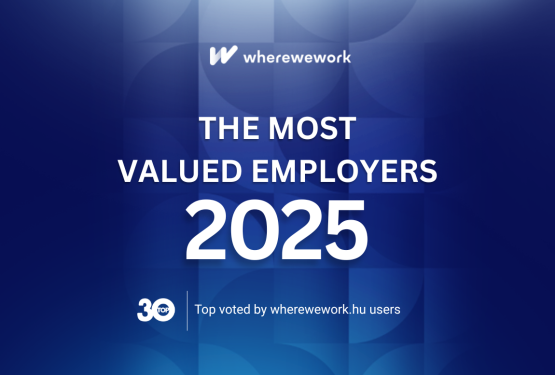Share
“The Benefits That Truly Matter”: What Hungarian Employees Want and What They Receive

In 2025, the Hungarian labor market is marked not by loud discontent but by quiet, accumulating tension. While employers believe they’re offering decent compensation packages — performance bonuses, basic health insurance, maybe partial remote work — employees are telling a different story. Wages aren’t rising fast enough, benefits feel generic, and motivation is eroding under the weight of unmet expectations.
This is not just an issue of economics. It’s about trust, purpose, and dignity at work.
A quiet dissatisfaction
According to the wherewework regional survey, 19.7% of Hungarian employees reported receiving no salary increase in the past two years. When asked about salary satisfaction, 39.5% said they were dissatisfied, while 19.7% were very dissatisfied. Only 2.6% said they were fully satisfied with their pay.
These numbers reveal a workforce that no longer believes hard work is fairly rewarded. They don’t just want more money. They want meaning, clarity and respect.
The wrong benefits for the wrong reasons
Employers in Hungary still rely on traditional offerings like private health insurance, performance bonuses, and flexible working hours. On paper, these seem adequate. In practice, however, only 47% of employees report actually receiving health insurance, and less than 40% benefit from flexible work conditions.
Emotional and family-oriented benefits — mental health support, parental flexibility, tailored growth opportunities — remain rare. And without emotional value, even well-funded benefits fall flat.
A willingness to walk
According to the wherewework survey, 68.4% of Hungarian employees are open to changing jobs, while 27.6% are already actively looking. This isn’t natural turnover. It’s a systemic warning. The current employee experience no longer delivers retention.
The insights in this article are grounded in data from the Regional Survey: Salaries and Benefits – Balancing Expectations and Offers, conducted between April and June 2025 across Romania, Bulgaria, Greece, Hungary and Republic of Moldova. With a total of 9,888 responses, including 990 employers and 8,898 employees, the study offers a deep, comparative look at how compensation and benefits are perceived and misaligned across the region.
What can employees do?
The reality is, many workers feel trapped between low pay and limited options. But the tools to navigate better paths do exist if they know where to look.
Platforms like wherewework exist precisely for this reason. By reading authentic anonymous employer reviews, job seekers can get a real picture of what companies offer beyond the job description. By contributing their own experiences, they help create a more transparent ecosystem that holds companies accountable and protects future candidates.
For those preparing to move on, wherewework offers tailored CV templates, designed not just to format resumes but to frame their narrative. The job search engine on the platform is more than a list. It’s a bridge to companies that respect your values.
In a world where employees are expected to accept whatever they’re given, tools like these are a small but powerful act of agency.
Final thought
The data is clear. Hungarian employees are not disengaging because they’re disloyal or impatient, they’re disengaging because they’re unheard. They are expected to perform at high levels, absorb economic shocks, and stay loyal, all while receiving generic benefit packages and modest, inconsistent salary progression.
This is not a talent problem. It’s a value problem.
Benefits are not a perk. They are the clearest indicator of how much a company understands and respects the realities of its people. When those benefits lack emotional relevance or long-term vision, no amount of salary optics can compensate.
The benefits that truly matter, flexibility, mental health support, growth opportunities aren’t necessarily expensive. But ignoring them is. It leads to quiet quitting, to brain drain, to an erosion of culture that no KPI can measure until it’s too late.
Employers who continue to offer the bare minimum will keep losing their best people. Not because they have to, but because they see no reason to stay.
Share
What I read is worth it:
Read all the articles about
Job opportunities CV Resources Workforce planning Human behavior Employee experience Employer brandingArticle written by:
Comments
0 comments

Access your account and add your comment
Job opportunities
Subscribe to the Newsletter
Read articles of interest from wherewework.hu contributors


